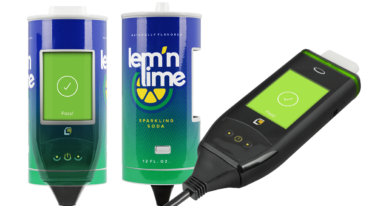
What You Should Know About California’s DUI Laws and Ignition Interlock Regulations
As a California driver, it’s important to know your state’s specific DUI laws and interlock regulations. Like all states, California has state-specific guidelines, some of which may have changed recently—which is why we’ve compiled this comprehensive guide to help you stay informed.
California’s DUI Laws
Receiving a DUI in California means that you have been found to be driving under the influence of alcohol, drugs, other substances, or a combination of these substances.
In California, if you’re 21 years old or older and take a blood, breath, or urine test that shows a blood alcohol content (BAC) of 0.08% or higher, you will be arrested for DUI.
If it’s your first DUI, or your first DUI within 10 years, you’ll automatically receive a four-month driving suspension.
If it’s your second or subsequent offense within 10 years, you’ll receive a one-year suspension.
For drivers under the age of 21 who take a preliminary alcohol screening (PAS) whose results show a BAC of 0.01% or higher, driving privileges will also be suspended for one year.
California’s DUI Penalties
DUI penalties vary from county-to-county in California, which is why we recommend researching the penalties of the county in which you were convicted to stay in the know.
If you live in certain California counties, a DUI violation can result in mandatory penalties that are non-negotiable.
For example, Riverside and Ventura counties are known to have some of the strictest rules in the state surrounding DUI convictions. In most DUI cases tried in these counties, jail time is mandated even on a first offense.
Immediate Driver’s License Suspension or Revocation
In California, the DMV will suspend or revoke your driving privileges when you’ve been arrested for DUI.
This administrative license suspension program is known as “Admin Per Se” (APS), which began in 1990 to provide a stronger deterrent against drunk driving.
Though all APS cases are unique, there are some overarching rules and regulations that can be helpful to know:
- Under APS, the DMV is required to suspend or revoke the driving privilege of any person arrested for driving under the influence of alcohol, drugs, or a combination of alcohol and drugs who does either of the following:
- Takes a chemical (blood or breath) test which shows a 0.01% blood alcohol concentration (BAC) level while on DUI probation.
- Takes a chemical (blood or breath) test which shows a 0.04% BAC while driving a commercial vehicle.
- Takes a chemical (blood or breath) test which shows a 0.08% or more BAC while driving a noncommercial vehicle.
- Refuses to take or fails to complete a chemical test (blood or breath) to determine their BAC level or the drug content of their blood.
- If your license is suspended or revoked, an officer will send your license to the DMV to be destroyed.
- You will then be issued a temporary driver’s license valid for thirty days, usually beginning on the day of your arrest. After the thirty days are complete, the suspension or revocation goes into effect.
- If it’s your first offense, or your first offense within 10 years, the suspension will last four months.
- If it’s not your first offense, the suspension will last one year.
- To reinstate your driving privileges after an APS suspension or revocation, you must first:
- Pay a $125 reissue fee to DMV.
- File proof of financial responsibility with DMV.
- Maintain proof of financial responsibility for 3 years.
For more information on the APS rules and restrictions, check out this page from the California DMV official website.
Statewide Ignition Interlock Device Pilot Program
On January 1st, 2019, California instituted an Ignition Interlock Device Pilot Program that requires all repeat and injury-involved DUI offenders to install an ignition interlock device (IID) for a period between one to four years, depending on the number of prior DUI convictions. As of now, the program is set to run through December 31st, 2025.
Under the pilot program, all repeat and injury-involved DUI offenders are required to install an ignition interlock device in order to resume driving privileges, except for the following offenders:
- First-time offenders whose violation did not involve drugs only, and did not result in injury.
- Repeat offenders whose violation involved drugs only.
- Offenders who were administratively suspended after their DUI arrest.
- Offenders approved for an IID exemption.
For How Long Will I Have to Keep My IID Installed?
Affected drivers will have different mandatory installation periods, depending on the number of prior DUI convictions and other conditions regarding the offense.
Here’s a table demonstrating various installation periods and their defining conditions:
Mandatory IID Installation Period for Multiple and Injury Offenders
| Number of Prior DUI Convictions Within 10 Years | Mandatory IID Restriction Term Non-Injury offenses | Mandatory IID Restriction Term Injury Offenses, or Vehicular Manslaughter Offenses |
|---|---|---|
| 0 | None | 1 year |
| 1 | 1 year | 2 years |
| 2 | 2 years | 3 years |
| 3 or more | 3 years | 3 years |
| 1 or more prior felony convictions | 3 years | 4 years |
Can I Use My IID To Skip a Suspension or Revocation Period?
Some participants in the IID Pilot Program who immediately comply with installing the mandatory ignition interlock device can do so without serving a suspension or revocation period beforehand.
In order to get this process started, you’ll need to apply for an IID-restricted driver license, ensuring that you meet the following requirements:
- Clear all other outstanding suspensions or revocations on your driving record.
- Install an IID, like those provided by Low Cost Interlock, on your vehicle and provide the DMV with a Verification of Installation Ignition Interlock form.
- Provide a Proof of Enrollment Certificate (DL 107) or Notice of Completion Certificate (DL 101) for the appropriate DUI program length.
- Provide a California Insurance Proof Certificate (SR 22).
- Pay all applicable reissue and restriction fees, including additional Administrative Service Fees.
What If I’m an Alcohol-Related First-Time Offender?
If this is your first-time alcohol-related DUI, you may still have to install an IID for a period of up to six months upon conviction. If the court hasn’t ordered you to install an IID, you can still choose to apply for an IID restriction for up to six months, or to apply for a restriction allowing you to drive to and from your place of employment and/or to and from your DUI program for one year.
I’m a Drug-Only Repeat Offender—Can I Still Apply for an IID-Restricted Driver License?
Yes, you may qualify for an IID-restricted driver license after serving at least one year of your DUI suspension or revocation.
What If My License Was Suspended or Revoked Under The APS?
If it’s your first DUI, you can apply for an IID restriction for up to four months. If it’s a repeat, non-refusal offense, you can apply for an IID restriction for up to one year.
In both cases, you may avoid any suspended driving period by applying for the optional IID restriction immediately after your arrest.
If you opted to apply for an IID restriction, you may also receive credit towards the required mandatory IID installation period, if convicted. Only multiple and injury offenders have a mandatory IID restriction period.
I Don’t Own A Car—Can I Qualify For An Exemption from Mandatory IID Installation?
Yes, if the pilot program applies to you, you may qualify for an exemption from IID installation if you meet the following requirements:
- You don’t own a vehicle.
- You don’t have access to a vehicle at your place of residence.
- You no longer have access to the vehicle used when you were arrested for DUI.
If the above applies to you, you can apply for exemption by completing this exemption request form from the California DMV.
Once completed, you must submit the form to DMV to this address within 30 days from the date of your suspension or revocation notice:
Department of Motor Vehicles
PO Box 942890
Sacramento, CA 94290-0001
Keep in mind, if your exemption is granted, you’ll still have to serve your full suspension or revocation term and complete your DUI treatment program.
I Need to Drive For Work—How Do I Qualify?
Don’t worry—if driving is essential to your line of work, there is a way for you to continue employment. If you have an IID-restricted driver license, you may drive your employer’s vehicle during the scope of your employment without an ignition interlock device.
In order to qualify for this exemption, you must complete a Notice to Employers Ignition Interlock Restriction form and provide it to your employer. You must also keep a copy of the completed form with you at all times or with your employer’s vehicle.
An important note: If you have been granted an exemption from the mandatory IID installation, you do not qualify for the Employer’s Vehicle exemption.
How Do I Get an IID Installed?
At Low Cost Interlock, we’re proud to be a premier provider of certified ignition interlock devices in California. We know how stressful this process can be, so we work hard to make the process as easy and informed as possible for our clients.
With installation locations in over 50 cities in California, we’re confident that we can help you get where you need to go. Have a California-specific DUI or IID question? We’re here to help. Reach out to us at (844) 387-0326.

